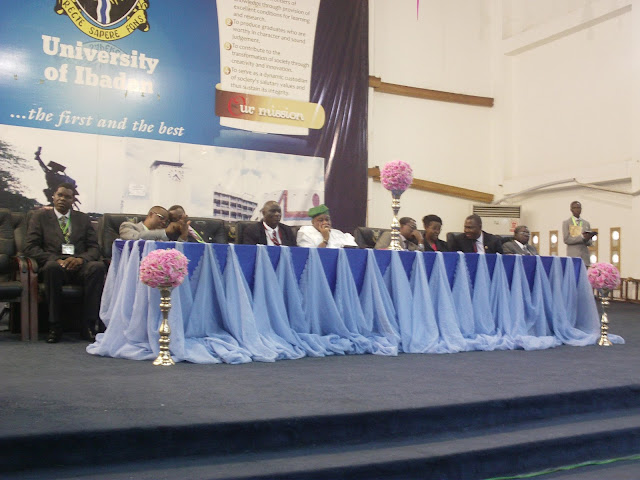Dr Philip Antwi-Agyei, Kwame Nkrumah University of Science and Technology (KNUST), Ghana
Cohort 1 CIRCLE Visiting Fellow
Cohort 1 CIRCLE Visiting Fellow
It is undeniable that our climate is changing. Recent
evidence suggests that doing nothing about our changing climate could have
serious implications for the livelihoods of many people, especially in Sub-Saharan Africa. Climate change adaptation is, therefore, crucial if rural
livelihoods are to survive the adverse impacts of climate change and
variability. Yet, adaptation efforts by rural households are confronted with
many challenges.
I recently
published a paper in
the journal Land Use Policy
that highlights that the changing nature of land tenure in many parts of Sub-Saharan Africa adversely impacts on the efforts of different social groups
of farming households to initiate adaptation measures. The paper employed
participatory methods to explore the linkages between land tenure arrangements
and land management practices in 6 study villages of different climate vulnerability
status in central and northeast Ghana. The paper sought to understand the
impacts of land tenure arrangements on climate change adaptation efforts of
different social groups in Ghana. The overall conclusion from the paper is that
“land tenure, within the broader
socioeconomic, environmental and political contexts, is implicitly involved in
shaping the vulnerability of poor female and migrant farmers” to climate
change in Ghana. Here, I unpack the
key messages from this paper and outline policy implications.
Land tenure
arrangements may impact on land management practices
Different social groups pursue different land management
practices based on land tenure arrangements. The study revealed that migrant
farmers who were renting their farmlands, and have insecure tenure engaged in
short term land management practices. On the contrary, indigenous farmers who
have inherited their farmlands employed long-term land management practices and
climate adaptation practices including agro-forestry systems that have the
potential to reduce their vulnerability to the adverse impacts of climate
change.
Secure tenure may impact
on land property rights
Migrant farmers and female farmers with less secure tenure may
lack property rights and are disadvantaged in sourcing credit and other
facilities to initiate livelihood adaptation strategies to reduce their
vulnerability to climate change.
Policy implications
The paper recommends the need to institute pragmatic
measures to reduce cultural discriminations against women via land reforms and restructuring
to take care of the rights of women farmers. Opportunities for women to own and
formalise land titles should be vigorously pursued by the Government of Ghana,
whist at the same time strengthening the capacity of state institutions
involved in land transactions through institutional capacity building to enable
them to function effectively. Finally, the rights of migrant farmers should be formally
recognised in policy documents to enable migrant farmers to initiate land-based
adaptations measures in a similar manner to non-migrant farmers.
 |
Philip explaining a point during a focus group discussion
with women farmers
|
Reflections on CIRCLE Fellowship
It
is important to stress that although this paper was developed prior to my
CIRCLE fellowship, substantial revisions were made during my CIRCLE tenure.
Being part of CIRCLE has brought immense benefits and further broadened my scope
for research. Crucially, it has provided several platforms for networking and
collaboration. For instance, it has provided opportunities for me to be part of
the Climate Change Working Group at my Host Institution, the University of
Ghana. Further, it has afforded me the opportunity to work with researchers
from my host institution on a larger project on “women, food security and climate change in Ghana”. Other networks
and collaborations have been forged with researchers from the UK and Canada on
climate change and urban ecosystems as well as “Climate Smart Cities and
Climate Change”. More importantly, the CIRCLE fellowship has given me
opportunities to be involved in a number of publications in leading peer
reviewed international journals including Land Use Policy, Environmental
Science and Policy, Regional Environmental Change, Sustainability, and the Journal
of Environmental Accounting and Management. Much of the collaborative research started
during this fellowship is likely to provide opportunities for research into
various aspects of climate change vulnerability assessments and adaptation even
beyond my CIRCLE tenure.
For
a copy of this paper, please see the following web page:
Philip
Antwi-Agyei (Ph.D.) is a CIRCLE Fellow hosted at the University of Ghana and
his Home Institution is the Kwame Nkrumah University of Science and Technology,
Ghana.





